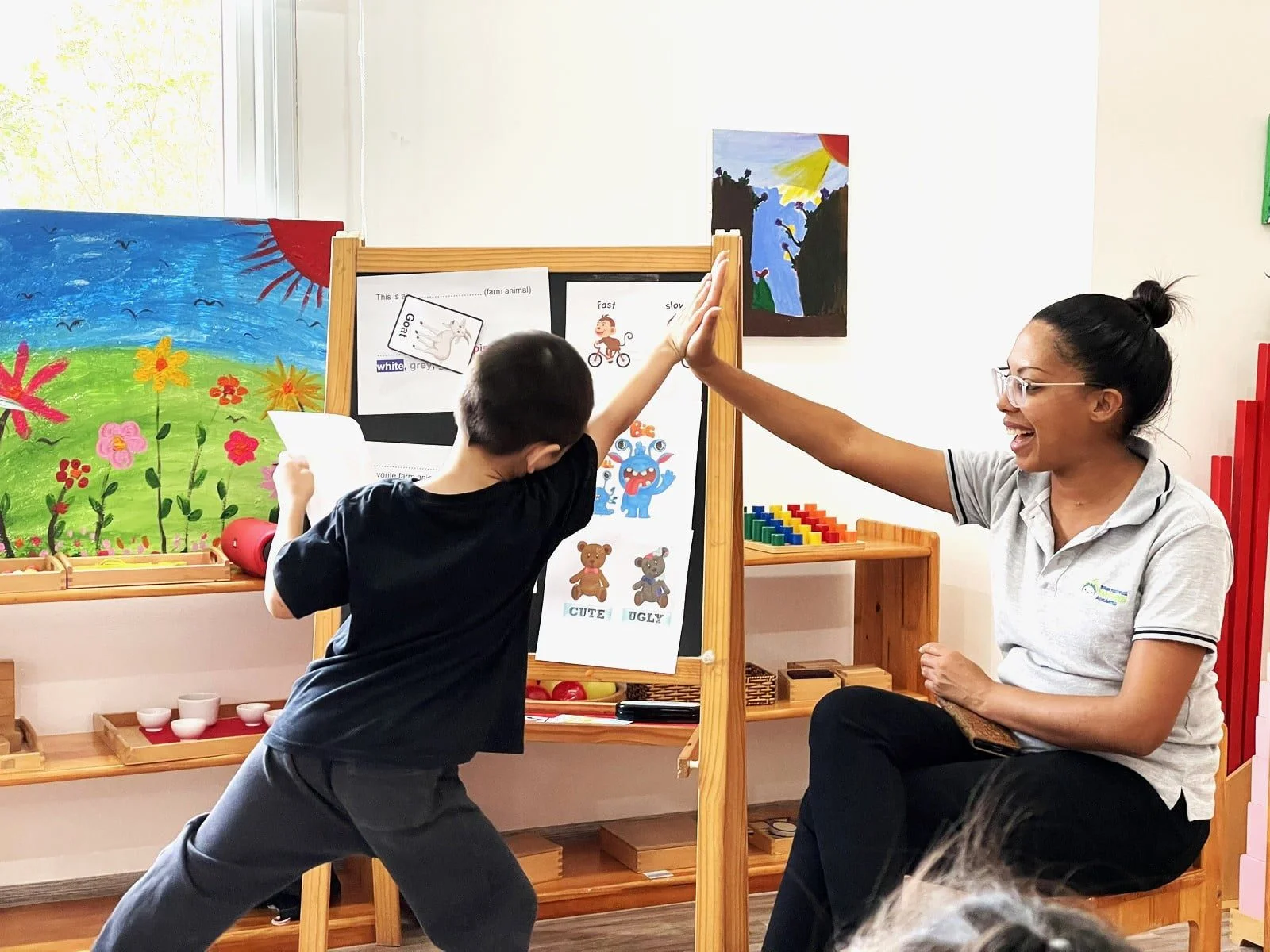To develop senses and motor skills, the sensorial corner includes specially designed lessons that help children develop their adaptability to the environment by fine-tuning each of their senses: seeing, hearing, tasting, touch, smell, and sense of space.
- Explore and experiment with different art materials
- Know the position in space (above, below, front, and back) relative to the child himself
- Recognize basic shapes & sizes (circle, square, large, and small)
- Create rudimentary drawings from sensory activities





